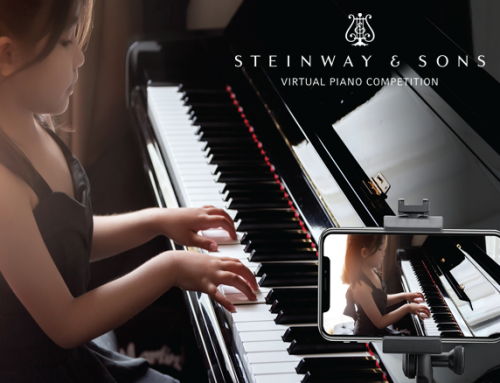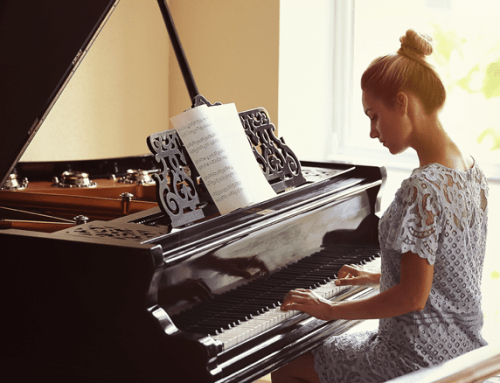Your child wants to learn to play the piano, but where do you start? You have to find not only a suitable instrument, you have to find the right person to teach your child, but how do you know who is a good fit for lessons? It can be an overwhelming process to select a teacher for your child’s piano lessons, so to that end, we’ve provided a few tips.
 INTERVIEWING PROSPECTIVE PIANO TEACHERS
INTERVIEWING PROSPECTIVE PIANO TEACHERS
Interviewing prospective teachers is good way of finding one that meets your child’s needs. When interviewing a prospective teacher, pay attention to how they communicate with each other. This is indicative of how lessons will flow. The prospective teacher should be open and willing to share information about their experience, skills, and style.
A few questions you might ask:
- What is your professional and educational experience in music?
- What is your teaching experience with children my child’s age?
- How do you regularly evaluate your students’ progress?
- What instructional materials do you use?
- What kinds of music do you teach?
- How do you structure your curriculum?
- Do you require students to perform in recitals during the year?
- Do you offer other performance opportunities for your students, such as competitions?
- How much practice time do you require each day?
- What do you expect of your students?
- What are your terms and conditions of employment?
- Can you provide references?
 HOW IS THE “CLIMATE”?
HOW IS THE “CLIMATE”?
A patient, friendly teaching environment makes learning productive. A teacher’s character and personality are as important as their technical skill. Like any relationship, you “click” with some people and not with others. If want a productive learning environment, you and your teacher need to “click.” Does the teacher seem comfortable with beginners? Is the studio child-friendly? Can you quietly observe a lesson in progress? These will be helpful indicators for making your choice. Keep in mind you’re looking for the best teacher for your child, not someone else’s, but the teacher’s demeanor with other children will be a good indicator for their suitability as a lesson provider.
HOW IMPORTANT IS EXPERIENCE?
Some teachers, especially the younger ones, may not have much experience. Ironically, it’s the teachers just getting started who often have the least experience teaching beginners. Keep an open mind about them, though. A young, enthusiastic teacher who’s willing to invest wholeheartedly in your child may be your best choice. Nothing is better than an experienced teacher, but nothing is worse than a teacher who is also rigid, exhausted, bored, or burned out.
WHAT IS YOUR GOAL FOR YOUR CHILD’S LEARNING TO PLAY THE PIANO?
While “having fun” is indeed important, it’s also important to be able to communicate to your child’s piano teacher what it is you’d like your child to accomplish. For example:
I want my child in an elite, competitive, high-energy musical environment.
You should choose a highly skilled teacher with a track record of competition winners who puts energy into finding those opportunities for your child.
I want my child in a warm, healthy environment that fosters individuality, creativity, and a love of music.
Look for a teacher with a studio where students play duets and which offers performance opportunities that are not competitive.
Perhaps most importantly, does your child’s motivation match yours when it comes to lesson goals?
 IS VARIETY OR CONSISTENCY MORE IMPORTANT?
IS VARIETY OR CONSISTENCY MORE IMPORTANT?
Look for a teacher who varies his or her routine. Many teachers use the same books and music year after year which can be beneficial; they’re good at teaching from them. But as their students develop and change, do you notice a tailored a curriculum for each individual student? How does your child learn best, and does it match the teacher’s style?
SO, HOW DO YOU FIND A PIANO TEACHER?
Start by asking your circle of friends and acquaintances if any of them is particularly happy with their child’s teacher. Referrals from other parents are fantastic places to start! Check with local music programs at colleges and universities—faculty often offer lesson programs, and you may find a hidden gem in a student. Inquire at your local music store; many have bulletin boards where people post lesson opportunities as well as post “lessons wanted” types of ads. Depending on your child’s age, ask the music teacher at his or her school. Some offer lessons after school or may have a network to draw on to make recommendations.
Of course, if you’re looking for a piano teacher in the Augusta, GA area, we always keep a list of recommended piano teachers at Turner’s Keyboards. Just get in touch and we will help guide you in the right direction.
 LET YOUR CHILD HELP CHOOSE
LET YOUR CHILD HELP CHOOSE
The bottom line is no amount of competition wins or qualifications matters if your child doesn’t care for his or her teacher. Pay close attention to your child. If your child seems to genuinely like the teacher, that’s important. Maybe even more important, does this teacher genuinely like your child? Your child will be spending quite a bit of time with this person, so take your time to find just the right fit.







Finding what goal you want for your child from piano lessons is important. I would imagine that you would look for a different teacher if you want them to be competitive or if you just want them to learn to play. I’m looking for a piano teacher for my daughter so I’ll have to find one that fits my goals for her.
I really like that the article encourages readers to really consider how much of a roll experience should play when picking a piano lesson for their kids. As is pointed out, a younger teacher, while not having as much experience, could have a lot more drive and motivation to teach your child. This ultimately could be the better choice as it would ensure your child gets all the help that they could possibly want.
Thanks for giving us such a wonderful tips about how to choose our piano teacher. Please keep us updated by your latest post. For more info:- http://melodyschool.ca/